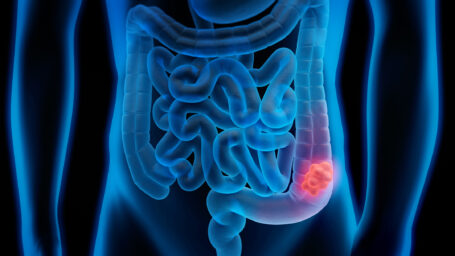Also called: Colorectal Cancer
General Information About Colon Cancer
- Colon cancer is a disease in which malignant (cancer) cells form in the tissues of the colon.
- Health history affects the risk of developing colon cancer.
- Signs of colon cancer include blood in the stool or a change in bowel habits.
- Tests that examine the colon and rectum are used to diagnose colon cancer.
- Certain factors affect prognosis (chance of recovery) and treatment options.
Colon cancer is a disease in which malignant (cancer) cells form in the tissues of the colon.
The colon is part of the body’s digestive system. The digestive system removes and processes nutrients (vitamins, minerals, carbohydrates, fats, proteins, and water) from foods and helps pass waste material out of the body. The digestive system is made up of the esophagus, stomach, and the small and large intestines. The colon (large bowel) is the main part of the large intestine and is about 5 feet long. Together, the rectum and anal canal make up the last part of the large intestine and are about 6-8 inches long. The anal canal ends at the anus (the opening of the large intestine to the outside of the body).














